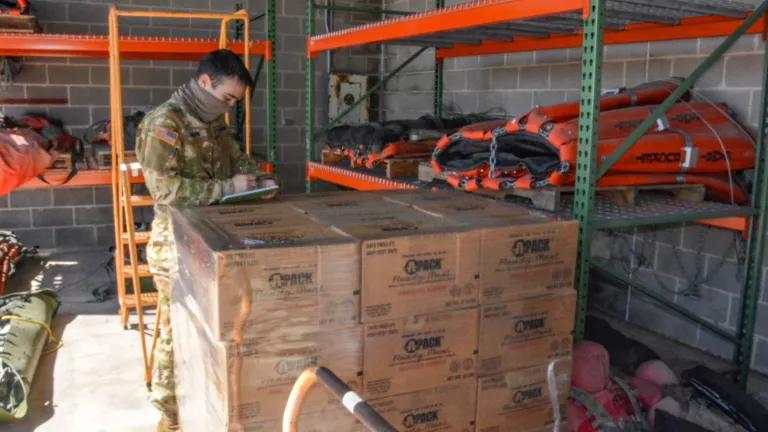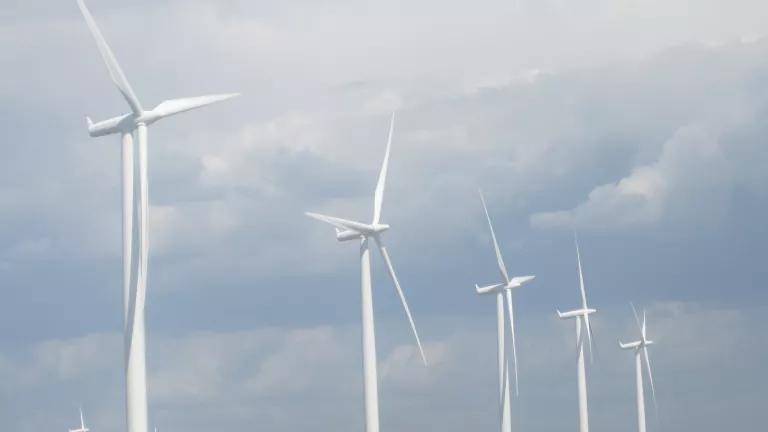What Went Wrong in Texas? Why We Need to Investigate.
The deadly winter storms and power outages in Texas last month are just the latest example of why the United States needs a National Disaster Safety Board.

A member of the Texas Army National Guard counts food packages that will be delivered to Texans on February 19, 2021, at the San Antonio Army Aviation Support Facility, Martindale, Texas.
U.S. National Guard photo shared under CC BY 2.0
The deadly winter storms and power outages in Texas last month are just the latest example of why the United States needs a National Disaster Safety Board. The crisis left millions of households without power in frigid temperatures, resulting dozens of tragic deaths, widespread disruptions to water access, and the release of millions of pounds of toxic chemicals in areas already disproportionately affected by the pandemic and other environmental and social injustices.
As the lights came back on, people across the country demanded investigations into the causes of the power and water failures and the humanitarian disaster. However, there is no central, coordinated process for such an investigation. On February 25, committees in both the Texas House and Senate began holding hearings on this topic. Officials in at least two Texas counties are launching their own investigations and 16 mayors urged in a letter to the state legislature a “full public airing” of Electric Reliability Council of Texas (ERCOT) policies and decisions leading up to the event. Meanwhile, supporters of the fossil fuel industry (including Texas’ own Governor Greg Abbott) incorrectly place the blame on wind and solar power.
As state Rep. Trey Martinez Fischer wrote, referring to ERCOT and the state’s Public Utilities Commission: "The state cannot fully investigate itself... Texans need an outside investigation into this crisis.”
Which brings us here: Wouldn’t it be useful to have a coordinated entity to investigate environmental and public health disasters, without a lens on scoring political points but rather on solving and preventing the contributing factors? A National Disaster Safety Board, for instance?
If there’s a plane crash, we have the National Transportation Safety Board to undertake a thorough and impartial investigation. A National Disaster Safety Board, which was proposed in Congress last October, would not assign blame but assess the effectiveness of the nation’s disaster preparedness and response and identify ways we can improve. NDSB recommendations would inform national, state, and local policies to ensure that we learn from our experiences and don’t repeat our errors. Importantly, the Board would put special focus on assessing and addressing impacts to people of color, low-income people, and others who face disproportionate risk from disasters (and from the nation’s unequal responses to them).
The federal disaster declaration approved on February 19 meant that American taxpayers will, once again, be contributing scarce resources for disaster relief after a preventable catastrophe. As of March 2, FEMA already had approved more than $41 million in individual and household assistance.
The federal government should have a stake in reducing risks to life, health, and property and increasing the resilience of all communities—particularly the communities of color and low-income communities that disproportionately bear the impacts of the climate crisis and disasters. It’s time that the nation invests in a system designed to stop disasters before they happen. The National Disaster Safety Board would be one key way to accomplish that.


